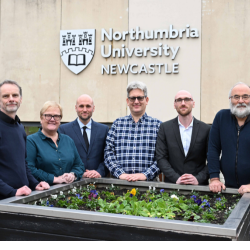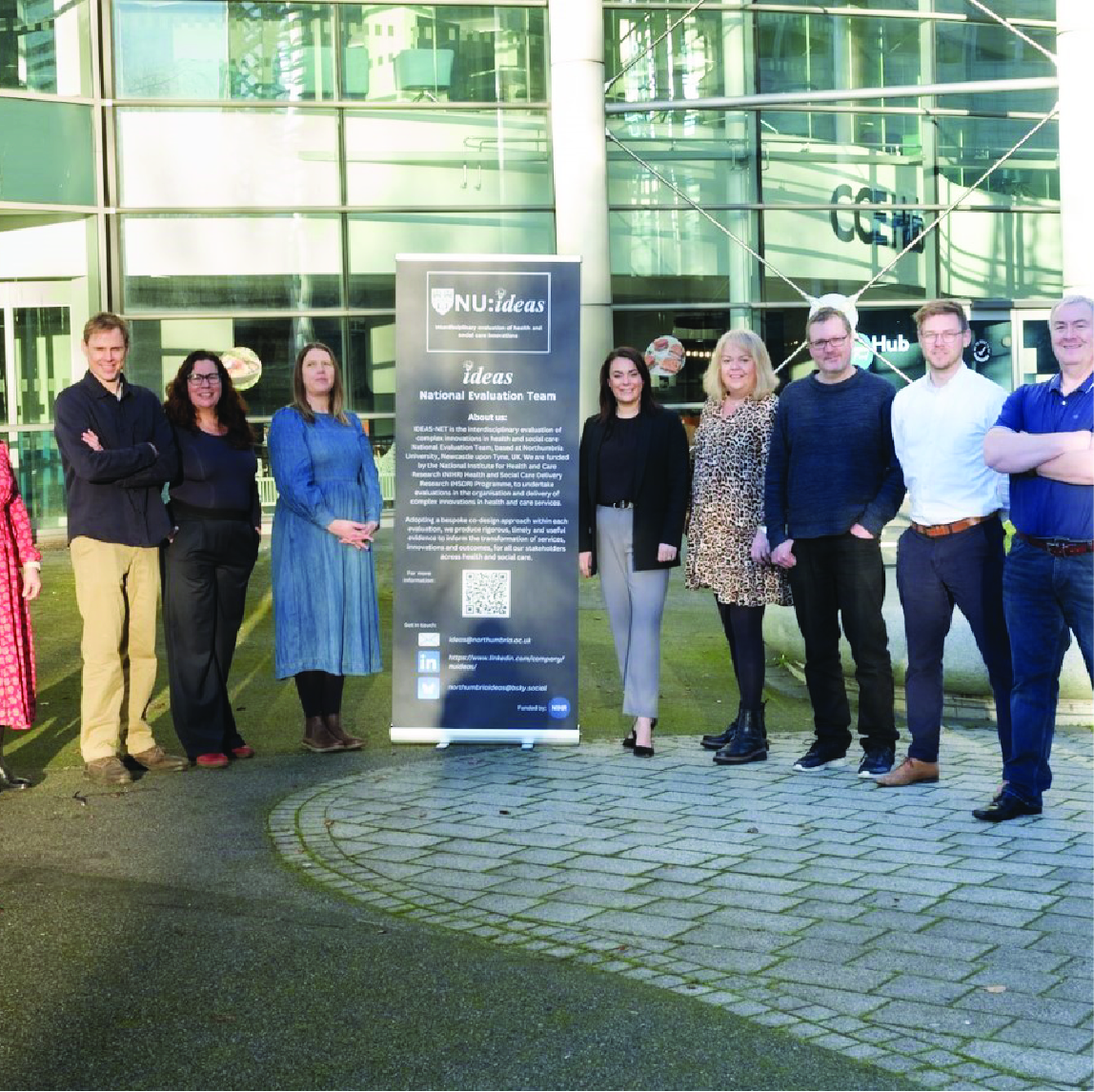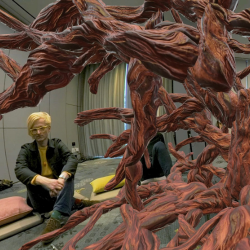-
Study
-
Quick Links
- Course Search
- Unlock Your Potential
- Still time to Apply
- Higher and Degree Apprenticeships
- Continuing Professional Development
- Still time to apply
-
Undergraduate
- Course Search
- Application Guides
- UCAS Exhibitions
- Foundation Years
- Fees and Funding
- School & College Outreach
- Information for Parents
-
Postgraduate
- Course Search
- Application Guide
- Postgraduate Research Degrees
- Flexible Learning
- Fees and Funding
- Change Direction
- Register your Interest
-
Student Life
- Students' Union
- The Hub - Student Blog
- Accommodation
- Northumbria Sport
- Support for Students
-
Experience Northumbria
- Open Days & Events
- Virtual Tours
- Campus Tours
- Life in Newcastle
-
-
International
International
Northumbria’s global footprint touches every continent across the world, through our global partnerships across 17 institutions in 10 countries, to our 277,000 strong alumni community and 150 recruitment partners – we prepare our students for the challenges of tomorrow. Discover more about how to join Northumbria’s global family or our partnerships.
View our Global Footprint-
Quick Links
- Course Search
- Undergraduate Study
- Postgraduate Study
- Information for Parents
- London Campus
- Northumbria Pathway
- Sign up for Information
-
International Students
- Information for Students
- International Events
- Application Guide
- Entry Requirements and Education Country Agents
- Global Offices
- English Requirements
- English Language Centre
- International student support
-
International Fees and Funding
- International Undergraduate Fees
- International Undergraduate Funding
- International Masters Fees
- International Masters Funding
- International Postgraduate Research Fees
- International Postgraduate Research Funding
-
International Partners
- Agent and Representative Network
- Global Partnerships
- Global Community
-
International Mobility
- Information for Northumbria Students
- Information for Incoming Exchange Students
-
-
Business
Business
The world is changing faster than ever before. The future is there to be won by organisations who find ways to turn today's possibilities into tomorrows competitive edge. In a connected world, collaboration can be the key to success.
More on our Business Services -
Research
Research
Northumbria is a research-rich, business-focused, professional university with a global reputation for academic quality. We conduct ground-breaking research that is responsive to the science & technology, health & well being, economic and social and arts & cultural needs for the communities
Discover more about our Research -
About Us
-
About Northumbria
- Our Strategy
- Our Staff
- Place and Partnerships
- Leadership & Governance
- Academic Departments
- University Services
- History of Northumbria
- Contact us
- Online Shop
-
-
Alumni
Alumni
Northumbria University is renowned for the calibre of its business-ready graduates. Our alumni network has over 246,000 graduates based in 178 countries worldwide in a range of sectors, our alumni are making a real impact on the world.
Our Alumni - Work For Us
What will I learn on this module?
This module will bring an occupational science perspective to local and global health and wellbeing issues. Drawing on concepts such as occupational justice, occupational marginalisation and occupational apartheid, you will explore how human activities and behaviours are influencing contemporary population health challenges (for example obesity, food insecurity and climate change), but also how occupation can be a solution for communities to move towards sustainable health and wellbeing.
You will be supported and encouraged to engage with local, national and global debates on health in order to develop and apply your own understanding of occupational perspectives of populations and public health concerns.
The development of knowledge and skills on this module will increase an appreciation of the political, sociocultural and environmental factors of human occupation and relationship to health and wellbeing.
How will I learn on this module?
This module will develop your understanding of the public health agenda. You will critically explore regional, national and international public health issues and priorities and develop familiarity with policy and legislation that supports this agenda. You will consolidate your knowledge and understanding of theory and concepts from occupational science, including occupational justice, occupational marginalisation and occupational apartheid, applying an occupational perspective to contemporary public health policy and political discourses.
You will develop an understanding of health promotion approaches and strategies to support behaviour change, with a focus on the occupational nature of human beings as a means for promoting and sustaining well societies. All of this knowledge will be applied to a practice-based project in a subsequent module.
How will I be supported academically on this module?
Core concepts will be introduced through a blended approach using both face to face and online learning opportunities. Seminar and practical sessions will also be utilised in order to explore topics in an interactive way and to further understand how theory, policy and evidence is being applied to authentic public health topics and initiatives. The voice of people who experience inequalities, injustice or have direct experience of public health initiatives will be represented within the module and sessions will help students to engage in critical dialogue
The identified module tutor, alongside the module teaching team, will structure face-to-face and on-line learning opportunities to support your learning within the module and to assist you to work towards the module assessment. The module handbook, the electronic reading list, and information communicated throughout the module within sessions and on the e-learning portal will all signpost you to resources to support your academic development.
A formative assessment opportunity will be integrated within the module. Staff and/or peer feedback will assist you to evaluate your own progress within the module and identify areas for development. Assessment preparation with the module teaching team will also be an integral part of the module.
The summative assessment will be a conference-style poster which analyses a contemporary public health topic from an occupational perspective.
What will I be expected to read on this module?
All modules at Northumbria include a range of reading materials that students are expected to engage with. Online reading lists (provided after enrolment) give you access to your reading material for your modules. The Library works in partnership with your module tutors to ensure you have access to the material that you need.
What will I be expected to achieve?
Knowledge & Understanding:
1. Discuss regional, national and international public health policy and priorities and debate the influence of occupations and the relevance to occupational therapy.
2. Understand and apply occupational science concepts in relation to groups, communities and populations
Intellectual / Professional skills & abilities:
3. Synthesise information from a range of sources to inform decision making.
4. Present health information in a clear and accessible manner.
Personal Values Attributes (Global / Cultural awareness, Ethics, Curiosity) (PVA):
5. Demonstrate and articulate an inclusive approach which respects and values diversity and a commitment to addressing inequality.
How will I be assessed?
Please give details of all formative and summative assessment process indicating which MLOs will be addressed and how feedback will be provided.
Formative assessment:
Students will present a visual representation (or a draft poster) of how an occupational perspective informs a public health concern with written tutor feedback.
Summative assessment
A conference-style poster presenting an analysis of a contemporary public health topic from an occupational perspective.
Students will be given clear guidance on confidentiality and anonymity.
You will receive written feedback summarising strengths and areas for development from your summative assessment.
This will promote achievement of all MLO’s
Pre-requisite(s)
Level 4 modules
Co-requisite(s)
N/A
Module abstract
This module will bring an occupational science perspective to local and global health and wellbeing issues. Drawing on concepts such as occupational justice, occupational marginalisation and occupational apartheid, you will explore how human activities and behaviours are influencing contemporary population health challenges (for example obesity, food insecurity and climate change), but also how occupation can be a solution for communities to move towards sustainable health and wellbeing. You will be supported and encouraged to engage with local, national and global debates on health in order to develop and apply your own understanding of occupational perspectives of populations and public health concerns.
The development of knowledge and skills on this module will increase an appreciation of the political, sociocultural and environmental factors of human occupation and relationship to health and wellbeing. The assessment for the module is a conference-style poster where you will apply your occupational perspective to a contemporary public health issue of your choice.
Course info
UCAS Code B925
Credits 20
Level of Study Undergraduate
Mode of Study 3 years Full Time
Department Social Work, Education and Community Wellbeing
Location Coach Lane Campus, Northumbria University
City Newcastle
Start September 2025 or September 2026
All information is accurate at the time of sharing.
Full time Courses are primarily delivered via on-campus face to face learning but could include elements of online learning. Most courses run as planned and as promoted on our website and via our marketing materials, but if there are any substantial changes (as determined by the Competition and Markets Authority) to a course or there is the potential that course may be withdrawn, we will notify all affected applicants as soon as possible with advice and guidance regarding their options. It is also important to be aware that optional modules listed on course pages may be subject to change depending on uptake numbers each year.
Contact time is subject to increase or decrease in line with possible restrictions imposed by the government or the University in the interest of maintaining the health and safety and wellbeing of students, staff, and visitors if this is deemed necessary in future.
Useful Links
Find out about our distinctive approach at
www.northumbria.ac.uk/exp
Admissions Terms and Conditions
northumbria.ac.uk/terms
Fees and Funding
northumbria.ac.uk/fees
Admissions Policy
northumbria.ac.uk/adpolicy
Admissions Complaints Policy
northumbria.ac.uk/complaints








